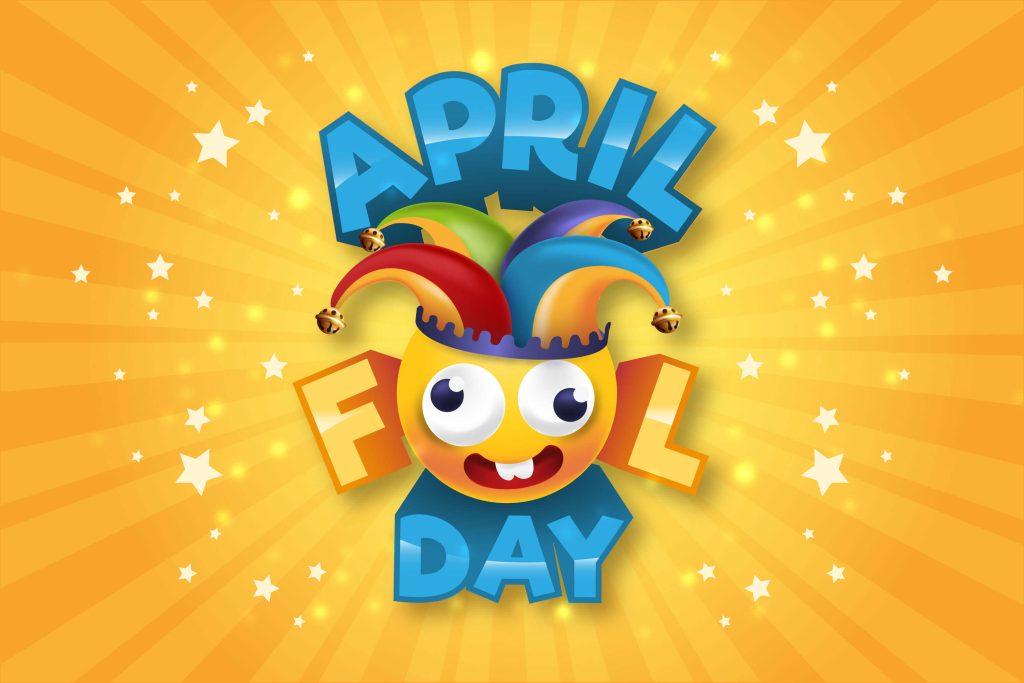Another April Fools’ Day is upon us. You know the drill. That slight tension when checking the news, the suspicion lurking behind surprising announcements from friends, or the groundbreaking product launches from brands online.
For some, it’s a day of harmless fun and creative pranks. For others, it’s frankly a bit annoying. I get both sides. However, beyond the laughter or eye-rolls, April 1st should serve as a high-stakes reminder that we need to question what we see and hear.
In a world inundated with information, some of which is true, some mistaken, and some crafted purely to mislead, thinking critically is a necessary life skill. While we address potential hoaxes today, let’s reflect on how to cultivate a discerning mindset throughout the year.
But first, a little background trip.
How Did April Fools’ Day Start?

Nobody knows the exact origins of April Fools’ Day. Theories range from ancient Roman festivals like Hilaria, to shifts in the
Nobody knows the exact origins of April Fools’ Day. Theories range from ancient Roman festivals like Hilaria to shifts in the calendar in 16th-century France, or even a debated mention in Chaucer.
Whatever the case, for centuries, many cultures have dedicated days to playful deception and turning things upside down.
April Fools’ Day has become an extension of that desire, providing us with a brief chance at playful absurdity and shared laughter (or groans) over a well-executed (or terribly obvious) prank.
In its weird way, April Fools’ Day exposes how easily perception can be manipulated when we don’t pay close attention
Why Sharpening Our Discernment Matters More Than Ever
That much should be pretty obvious, right? Every single day, we are bombarded with;
- Misinformation and disinformation: Sometimes, false information is spread by accident. At other times, deliberate lies are designed to manipulate.
- Clickbait & Emotional Headlines: Crafted purely to get a reaction, not necessarily to inform accurately.
- Deepfakes & AI Trickery: Technology making it scarily easy to create fake images, videos, and audio.
- Filter Bubbles and Echo Chambers: In today’s attention economy, algorithms feed us what we already believe, making it harder to see other perspectives.
- Emotional Manipulation: Content is often crafted specifically to bypass your rational brain and trigger outrage, fear, or tribalism.
Letting our guard down doesn’t just mean falling for a prank. It can lead us to believe harmful falsehoods, make poor decisions based on bad information, get caught up in needless online arguments, or feel constantly anxious and overwhelmed.
Lessons from April Fools’ Day: Practical Habits for Every Moment

So, how do we take the spirit of April 1st skepticism and make it a healthy, year-round habit? How do you become more discerning without turning cynical?
- Question More (Healthily): Don’t take everything at face value, especially online. If a claim seems extraordinary, emotionally charged, or too perfectly aligned with your biases, pause. Ask yourself: Does this feel right? Where is this actually coming from?
- Check the Source: Who is sharing this information? Is it a credible source known for accuracy, a random account, or a site known for satire? Can the information be corroborated from other sources? Taking a few seconds to check the origin of information before accepting it as fact can make a huge difference.
- Consider the Motive: Why is this information being presented now, and in this way? Is the goal to inform, persuade, entertain, provoke, or sell something? Understanding the potential motive behind a message helps evaluate its credibility.
- Look for Evidence (or Lack Thereof): Look beyond the clickbait. Are the claims supported by facts, data, or verifiable evidence? Be wary of purely anecdotal stories or strong emotional appeals presented without substance. A lack of evidence is often a red flag.
- Beware of Your Own Biases: We are all susceptible to confirmation bias. Actively seek out different perspectives, even those you disagree with, to get a fuller picture.
- Notice Emotional Reactions: Both harmless pranks and harmful misinformation often aim to provoke a strong emotional response (laughter, anger, fear). If you feel a powerful emotional surge from a piece of content, pause before reacting or sharing. Let your rational mind catch up.
- Embrace Nuance: Real life is rarely black and white. Be wary of overly simplistic narratives or solutions. Look for complexity, context, and different viewpoints.
- Choose Scepticism over Cynicism: There is a vital difference here. Skepticism says, “I will believe this once I see the evidence.” It is an open-minded search for truth. Cynicism says, “Everything is a lie, and everyone is out to get me.” It is a closed-door policy that prevents growth.
Thinking Clearly in a Complicated World
Here is what we are saying.
Don’t just avoid being fooled today. Develop a discerning mind by learning to think critically. Ask the hard questions. Pay attention to the facts. Consider motives and, of course, manage emotional reactions.
You’ve got this.
How do you practice discernment in your daily life, especially online? Share your thoughts in the comments section.

